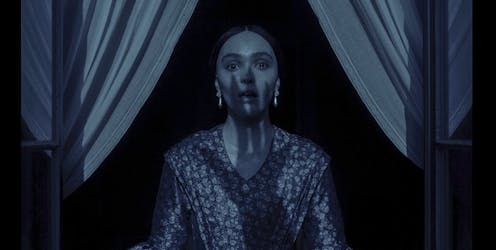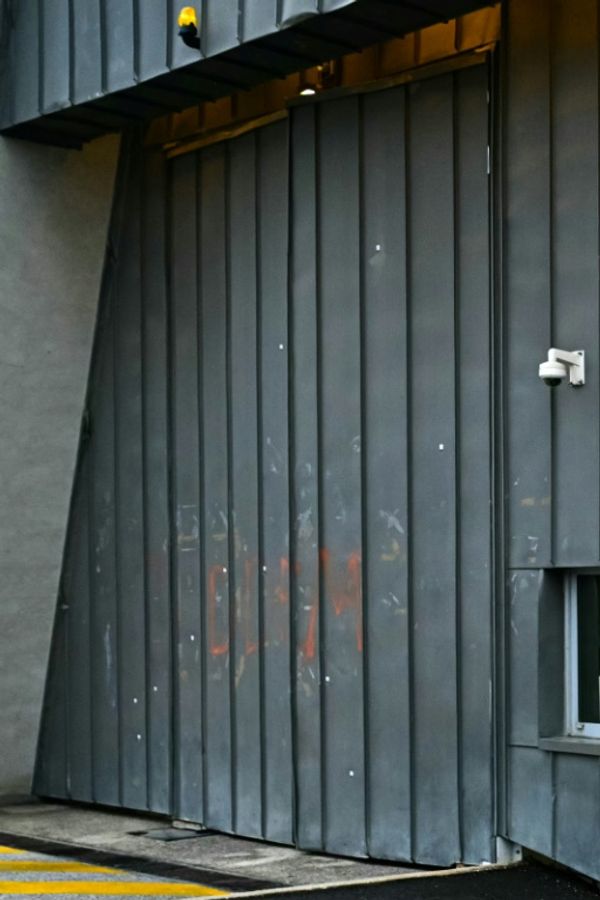
In two of the biggest films released this summer, Gladiator II and Nosferatu, most actors seem to be speaking like they’re in a Shakespeare play – even though their characters are based in Ancient Rome and 1830s Germany. Where does this false British accent come from?
Hollywood has long resorted to this posh-but-unspecific English accent when telling stories set in European spaces where English isn’t the native language. This imperial accent appears in countless major productions including Schindler’s List (1993), The Pianist (2002), 300 (2006) and HBO’s 2019 miniseries Chernobyl.
Yet it’s possible to incorporate authentic accents without sacrificing audience interest. Inglourious Basterds (2009) is one example of how a blockbuster can be authentically multilingual, so much so that a crucial plot point revolves around the delicate nuances between native and near-native German.
There’s also Sofia Coppola’s approach in the 2006 film Marie Antoinette. Here, actor Kirsten Dunst’s valley girl accent is deliberately jarring, as are the purple Converses in her wardrobe and the soundtrack playing classical music alongside The Strokes. Coppola reminds us this film is a confection made from our modern fantasies of the ill-fated French queen.
But Gladiator II and Nosferatu contain no such insight.
Ancient Rome according to Ridley Scott
Paul Mescal plays Hanno in Gladiator II. Hanno is a Hercules lookalike living in Numidia, an African city invaded by the Roman army in the film’s opening scenes.
His whiteness among a black population will later be explained, but his accent will not. Although Paul Mescal is a native English speaker, his actual Irish accent is replaced with an English one in the film.
Similarly, Pedro Pascal’s General Acacius and Connie Neilsen’s Lucilla speak in an amorphous attempt at the imperial accent that oscillates between British and American. The only exception is Macrinus, played by Denzel Washington, who keeps his original American voice.
Gladiator II is far from Ridley Scott’s first foray into the use of the imperial accent. Of course, the original Gladiator film used it (though Russell Crowe’s Australian accent slipped through), as did Scott’s historical biopic Napoleon (2023).
The latter featured almost entirely French and Corsican characters, with no French or Corsican accents to be heard. Lead actor Joaquin Phoenix kept his American accent throughout his portrayal of Napoleon Bonaparte, to the confusion of critics and audiences alike.
French critics were particularly appalled by the film, with one reviewer describing it as “Barbie and Ken under the Empire.”
A German horror … set in London?
The imperial accent isn’t just confined to popular blockbusters. Filmmaker Robert Eggers has developed an auteur reputation for his arthouse horror films The Witch (2015) and The Lighthouse (2019). His recent release, Nosferatu, is a darkly funny and disturbing adaptation of the 1922 horror classic directed by F.W. Murnau.
Murnau’s German Expressionist masterpiece was a famously unlicensed adaptation of Bram Stoker’s Dracula. Murnau copied the original story but changed the names and switched the British characters to German ones.
Eggers’ adaptation is also set in 1830s Germany. Yet its British, American and French cast speak in English accents, to confusing effect. Viewers might assume the film is using the original London setting of Stoker’s story, before learning that the main characters Ellen (Lily-Rose Depp) and Thomas Hutter (Nicholas Hoult) are from Wirsberg, Bavaria.
The origins of the imperial accent
Professional actors should be as capable of learning a German accent as an English one. So why do so many productions return to the imperial accent of English-language cinema?
The answer may lie with film scholar Richard Dyer, whose 2017 book White critiques how Anglo-Western societies position whiteness as a default identity – the baseline from which all other identities differ. Whiteness, Dyer writes, is treated as a state “without properties, unmarked, universal, just human”.
The dominance of English – the language of history’s largest colonial empire and the modern lingua franca – is an extension of this. And Hollywood’s imperial accent may be part of the same impulse.
Even when representing other white groups, the English accent dominates onscreen. Be it 2nd century Rome, 19th century Wirsberg or 20th century Minsk, English is treated as a universal language, and a delocalised English accent is treated as though not an accent at all.
A default white voice
The imperial accent operates as a universal “white voice” that erases all other cultural specificities. This might also explain why it’s not extended to most characters of colour.
In Gladiator II, with the exception of Denzel Washingston and Peter Mensah (whose character Jugurtha retains Mensah’s sub-Saharan African accent), all the non-white speaking roles are delivered in an ambiguous blend of Mediterranean accents.
This homogenises their identities in a subjugated and racialised form. Romans are positioned as the centre of power, while everyone else is peripheral and speaks “exotic”, accordingly.
Eggers’ Nosferatu does the same. Only the Romanian villagers and the mysterious Count Orlok speak in “accented” English – their Eastern European accents a sign of their foreignness and strangeness. Dracula has always been a thinly-veiled portrayal of xenophobia and antisemitism. The use of accent perpetuates this in Nosferatu as well.
Vocal training is part of actors’ repertoire. Most actors are putting on an accent when they adopt the imperial one anyway, so why can’t they speak in the accent that reflects their character’s true background? Perhaps they could even speak in their languages.
The choice lies with filmmakers such as Scott and Eggers, who must confront what is bound up in the imperial accent and question why, for so long, they have treated it as unquestionable.
Gemma King receives funding from the Australian Research Council.
This article was originally published on The Conversation. Read the original article.







